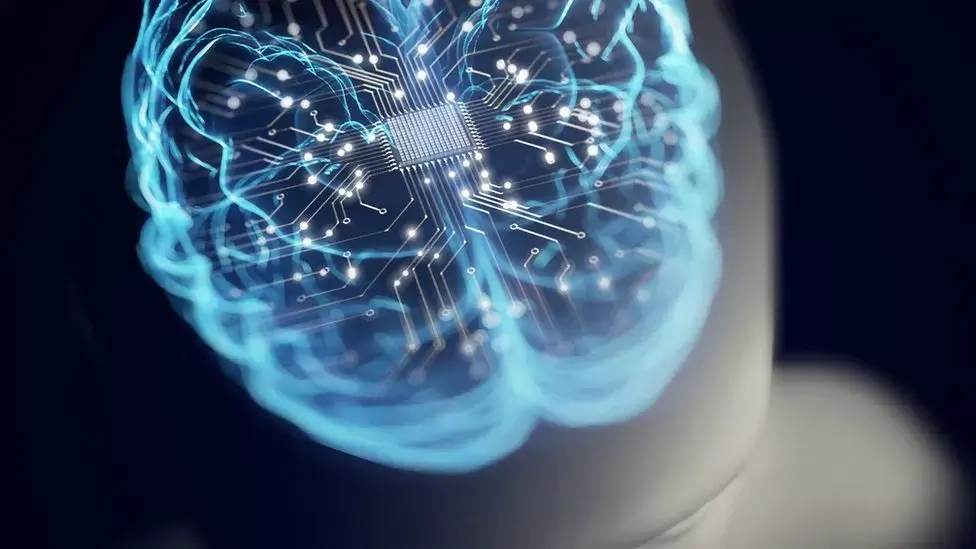IBM, a technology giant, has introduced a groundbreaking prototype of a “brain-like” chip that could significantly enhance the energy efficiency of artificial intelligence (AI) systems, addressing concerns about the environmental impact of power-hungry AI setups. This innovative development has the potential to revolutionize AI by paving the way for more energy-efficient and less battery-draining chips, particularly beneficial for devices like smartphones.
The efficiency of this prototype chip is attributed to its unique components, which operate in a manner akin to the connections found within the human brain. Unlike conventional computers, which consume substantial power, the human brain achieves remarkable performance with minimal energy consumption. IBM’s scientist, Thanos Vasilopoulos, situated at their research lab in Zurich, Switzerland, stated that this heightened energy efficiency could enable the execution of large and intricate workloads even in power-constrained environments such as cars, mobile phones, and cameras.
Furthermore, Vasilopoulos emphasized that the implementation of these chips could yield significant benefits for cloud providers by reducing energy costs and carbon footprint. The predominant feature of this chip lies in its utilization of memristors (memory resistors), which function analogously and have the capacity to store a range of numbers. This stands in contrast to the binary nature of most digital chips, akin to a light switch, while the memristor-based chip operates more like a dimmer switch.
Drawing inspiration from the brain’s synapses, memristors hold the potential for nature-inspired computing that mirrors the brain’s functioning. This is because memristors can retain their electrical history, similar to the behavior of synapses in biological systems. As Prof Ferrante Neri from the University of Surrey explained, interconnected memristors can simulate a network resembling the human brain, indicating the advancement towards brain-like chips.
Despite the promising potential, Neri cautioned that the journey towards memristor-based computers is not devoid of challenges. Widespread adoption faces hurdles such as material costs and manufacturing complexities. Nonetheless, the integration of digital elements within the chip’s design ensures compatibility with existing AI systems, making it easier to implement.
Current smartphones already employ AI chips to enhance tasks like photo processing, exemplified by Apple’s “neural engine.” IBM envisions future applications of their chip in smartphones and cars, promising extended battery life and new functionalities. Beyond these immediate applications, these chips could significantly conserve energy by replacing the chips in power-intensive AI systems, reducing the need for water-cooling in energy-guzzling data centers.
James Davenport, a Professor of IT at the University of Bath, acknowledged the potential of IBM’s findings, characterizing them as “potentially interesting.” However, he cautioned that the chip’s integration is not a straightforward solution but rather an initial step towards a more comprehensive resolution to the energy efficiency problem in AI systems. In essence, IBM’s prototype chip presents an innovative and hopeful leap towards energy-efficient AI, although challenges and refinements are anticipated on the path to its full realization.





